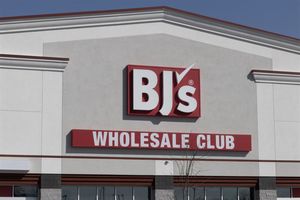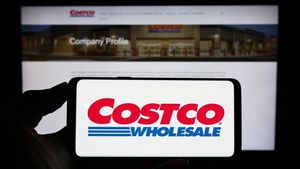How California Convinces Buyers Not to Purchase New Cars — and How This Hurts Dealers
By:
PRLog
November 23, 2025 at 21:41 PM EST
BAY AREA, Calif. & SANTA CRUZ, Calif. & MONTEREY, Calif. & SAN LUIS OBISPO, Calif. - Nov. 23, 2025 - PRLog -- Have you ever met someone who moved away from California simply because of DMV fees? I have — and it's not hard to see why. Depending on the county, registration fees on a $60,000 vehicle can approach $940 (and that's before sales taxes, dealer fees, and mandatory add-ons). For a family living paycheck-to-paycheck, that's not a minor nuisance. If a household owns three vehicles, their annual DMV burden alone could exceed a month's rent in many parts of the country. And that's just one piece of the puzzle. Californians already face the nation's highest gasoline taxes, some of the highest base prices due to reformulated fuel requirements, and a regulatory climate that raises the cost of nearly everything involved in transportation. But none of these are the real barrier that stops families, retirees, gig workers, and small business owners from buying a new car. The real stumbling block — the one that freezes the entire purchase decision — is California's sales tax system. I drive a Lincoln MKZ Hybrid with 130,000 miles on it. It has been a faithful companion through campaigns, commutes, and countless meetings. By any reasonable measure, I could justify buying a new vehicle. But I won't — not in California's current policy environment. And I'm not alone. Across our state, families, retirees, gig workers, and small business owners are quietly making the same decision: not to buy. Why? Because California has created one of the most punitive cost structures for vehicle ownership in the nation. What used to be a straightforward purchase has become an intricate dance with sales taxes, registration fees, regulatory hurdles, and "use-tax" traps that hit honest consumers with a bill they never saw coming. The "Punishment" for Buying a Car Let's be candid: California has turned new vehicles — especially modest luxury or hybrid models — into a tax event rather than a transportation decision. When a consumer buys a car in California, they simultaneously trigger:
That's not "supporting green transportation." That's discouraging mobility. The Absurdity of Deterring Responsible Buyers In my case, I considered upgrading. As a candidate for U.S. Congress, I drive thousands of miles across Santa Clara, Santa Cruz, Monterey, and San Luis Obispo counties. A newer, fresher vehicle would be a rational choice. But I chose not to buy one — and not because I lack the means. My MKZ Hybrid is running beautifully. It should easily reach 180,000 to 200,000 miles. Even if the hybrid battery eventually needs replacement — an estimated $3,000–$4,000 expense — that is dramatically cheaper and more practical than handing the State of California an additional $8,000+ in taxes and fees simply for choosing to upgrade responsibly. This isn't frugality. It's rational behavior in the face of irrational government incentives. The Deadweight Loss: When Taxes Become So High They Reduce Revenue Classical economics teaches us about deadweight loss — the idea that when taxes or costs become excessively high, individuals simply stop buying. Everyone loses:
Walk into a dealership anywhere from Los Gatos to Salinas and ask managers about foot traffic. Ask them about the slowdown. Ask them how many qualified buyers are delaying purchases purely due to the cost structure created in Sacramento. California's policies don't just hurt wealthy buyers; they hurt the middle class, working families, car dealerships, union mechanics, and local tax bases. It's a perverse incentive structure that tells consumers: "If you're smart, you won't buy here." And many are listening. The Ripple Effect on Local Dealerships Dealerships are often multigenerational family businesses. They employ:
This is not environmental policy. This is not consumer protection. This is a politically engineered choke point on mobility and commerce. When Government Becomes the Barrier, Not the Bridge A government should encourage responsible purchasing — not punish it. It should incentivize:
I would love to support a local dealership. I would love the benefits of a fresher hybrid or EV. But until Sacramento stops treating middle- and upper-middle-income buyers as walking revenue units, I will keep my MKZ Hybrid running for another 50,000–70,000 miles. And I suspect hundreds of thousands of Californians will do the same. A Better Way Forward California needs a policy environment where:
The State of California may have forgotten how everyday economics works. But the voters haven't. — Peter Coe Verbica U.S. Congressional Candidate Santa Clara • Santa Cruz • Monterey • San Luis Obispo Counties Interested in making a difference? Support Verbica's campaign and help him fight for you in California and DC: Support - Verbica for Congress (Image source: Midjourney 2025 with inputs by P. Verbica.) For more information: www.peterverbica.com Paid for by Verbica for Congress. Photos: (Click photo to enlarge)  Source: Verbica for Congress Read Full Story - How California Convinces Buyers Not to Purchase New Cars — and How This Hurts Dealers | More news from this source Press release distribution by PRLog More NewsView More
NVIDIA Nears Buy Zone as Rumors Swirl About China Chip Deal ↗
Today 14:23 EST
Via MarketBeat
Tickers
NVDA

These 3 Tech Companies Are Suddenly Paying Bigger Dividends ↗
Today 13:02 EST


BJ’s Wholesale Club and the Case for a Bullish Market Reversal ↗
Today 11:45 EST
Via MarketBeat
Tickers
BJ

Why Costco Stock May Struggle Even as Its Business Thrives ↗
Today 10:31 EST
Recent QuotesView More
Stock Quote API & Stock News API supplied by www.cloudquote.io
Quotes delayed at least 20 minutes. By accessing this page, you agree to the Privacy Policy and Terms Of Service.
© 2025 FinancialContent. All rights reserved.
|
>